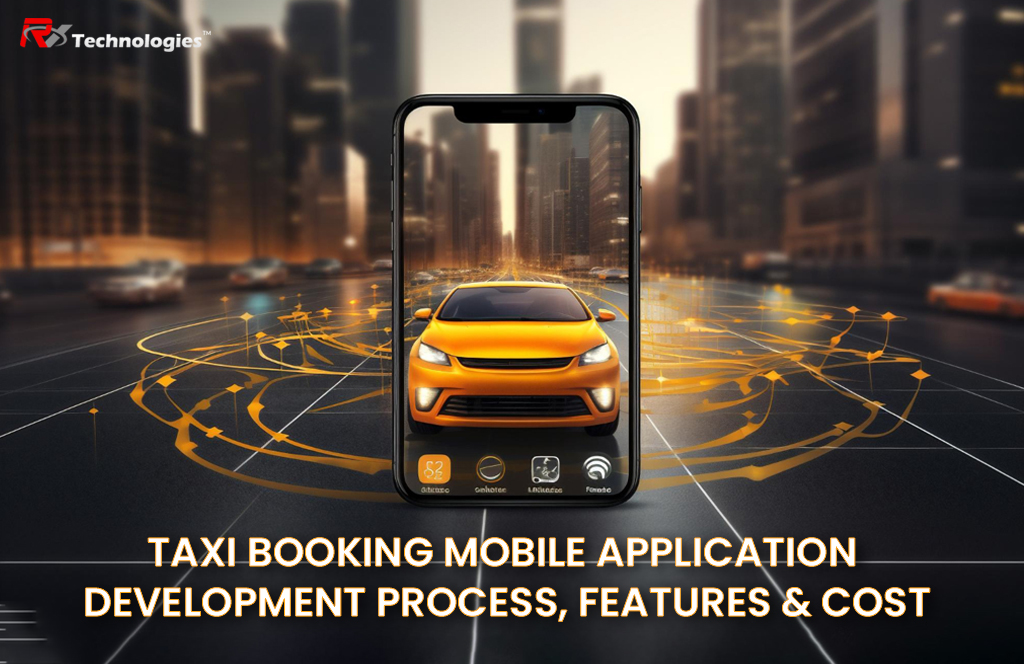Do you have an exceptional mobile app idea, and you are afraid that somebody will steal your idea and develop it before you launch the mobile App in the marketplace? Luckily, some laws can help you keep your mobile idea safe, restricting other businesses from stealing your idea.
Now the question arises: What laws are there to help you safeguard your mobile application? Have you heard about intellectual property law? It is particularly a patent, safeguard, trademark, and copyright law that helps you with the protection of your mobile app idea.
Many entrepreneurs and startups want to patent mobile app ideas to keep others from using them. But before patenting your mobile app idea, make sure it is unique and exclusive to be subject to patent law; otherwise, all your efforts will go in vain.
However various business owners and startups also wanted to know how patents are processed before starting mobile app development. Let’s dig deep and properly understand “how to patent a mobile app idea.”
What does it mean to patent a mobile app idea?
You need to be aware of intellectual property law to patent your mobile app idea. It is a law that shields your development ideas from other business owners or individuals, restricting them from changing or selling them, considering you own your ideas.
This law not only helps patent your mobile app idea but also ensures that no one can ruin your app idea or get profits or credit wrongfully.
Does a mobile app idea really get patented?
Many people research whether they can patent a mobile app idea or not and if yes, then how. In most cases, you can patent things except code, math formulas, etc., but you can copyright them.
How are patents granted?
There are multiple methods to patent your mobile App, and you can patent multiple facets of your application like user interface, data privacy, and more.
You will not just get it patented just because you have a mobile app idea with you. It requires deep research on whether or not this app idea is patented. And for that, you need to first research keywords to make sure your app idea is noble, as it is not about who invented the idea but who has the first one to grant a patent.
Is it a good idea to patent your mobile App?
Yes, why not? With a patenting tag, your idea becomes safe, and if any party tries to violate the patent laws, you have the right to ask for compensation. Moreover, patenting gives you legal proof of the originality and uniqueness of your app idea. Hence, if you patent your mobile app idea, no one can ruin your idea financially.
Benefits of Patenting an App include
A patent application for your software idea or program can stop your rivals from entering the market first.
You can defend the digital assets you’ve generated or are still working on by patenting your mobile application.
You are entitled to damages, complaints, and compensation if the idea for an app is copied or violated.
Eligibility criteria to patent your mobile application
To make yourself eligible to patent a mobile app idea, you need to make sure:
– You must come up with a completely new app development idea
Even if your idea for a mobile app resolves user problems, it might not be eligible for patent protection. Your application concept should be fresh and original. If it is not original and does not already exist, you cannot patent it. Thus, it is best not to reveal your idea in public.
– Your App must be an invention
Patents are for keeping your idea safe from others. As per the World Intellectual Property Organization, it is given to an invention that is explained as a solution to every issue.
– The App must qualify a criterion
Your application idea doesn’t need to fall within the entertainment or another similar area to qualify as a helpful app. Your App only needs to work, at least theoretically. This prohibition prevents people from patenting these useless apps. To claim your App as an asset, you must provide a thorough and specific description of how it works.
Is there any procedure to check whether your app idea has already been patented or not?
You must determine whether another party has already patented a potentially novel mobile app concept. This necessitates a thorough analysis of each associated app idea that is either marketed or pending. There will be a functioning database in your state or nation where this information is stored and retrieved.
Additionally, you can research using the WIPO’s IPC Catchword Index, which includes information about several foreign patents. This will help you comprehend how to patent a mobile app concept.
How to patent your app idea?

– Contact a Patent Lawyer
To patent your app idea and maximize the application scope, you need to hire or consult a patent lawyer who deals with software patenting. Make sure to look for an experienced lawyer.
Given that it is a legal procedure, litigation may be involved. So, rather than attempting to do it yourself, hire a professional. You are not suggested to select the first attorney you find. Make a thorough investigation and look for the greatest option within your means.
– Describe your lawyer and your app idea
Thinking of a unique concept is not an end; you have to look forward to making your idea into reality, and in order, you need to look for the eligibility criteria to patent an app idea.
Before patenting, you need to document the entire development process because, during the patent process, the court will ask you for proof of your invention before issuing a patent against your App.
You may also create a prototype of your mobile App to evaluate its functionality. This will make it easier for your attorney to evaluate the flowchart of your software since its functions and processes but not its code that you can patent. It can examine how your App functions differently across different businesses and give you a fresh perspective on what other parts of your App might be eligible for patent protection.
– Exercise Patent Search

Even if you did your homework correctly, it is still advised that you hire a patent attorney that searches the entire world for apps that are identical to yours or have the same flows or capabilities. You can avoid any unexpected breaches from other firms with this method. Spending some money and ensuring your patent has the best chance of being accepted is advisable.
– File a Provisional/Non-Provisional Application
Different Types of Patent Applications
Patent applications are of two types: provisional and non-provisional.
| Provisional | Non-provisional |
It is a less expensive process | It is a costlier process |
To publish and become its patent you need to file a non-provisional application. | It takes 18 months post-filing and your idea gets patented within 24-28 months. |
Expires after 12 months and you have to file a non-provisional application to have your idea patented for a longer time. | Processed by the patent office, and if no provisional is filed, it becomes a patent. |
You can apply without requiring a patent claim, declaration, or data disclosure statement. One of the most popular and straightforward ways to submit a pattern application to safeguard your mobile app idea or the application itself is through the provisional application process.
Further, non-provisional applications can be filed without any claim created on the application. Still, it is a complex process as extensive legal requirements must be met before gaining access to the patent.
The non-provisional patent application should also include all necessary details regarding the invention or app concept, as well as at least one claim that expresses the limitations of the app idea or application’s use.
To select between the two, you must consider:
How long to delay patent text expenses?
Do you want to approve your patent quickly?
If you want your patent in less time, non-provisional is best. However, if you are in no hurry, go for a provisional patent application, as it is never examined, as opposed to non-provisional.
– Submit Your Application

Once you decide about the type of application you need to go through, the final step is patenting a mobile app idea application submission with the USPTO. You should look into it, even if it’s time-consuming and requires tons of paperwork. You could require certain essential papers for this process, such as:
Specification
Data Disclosure Statement
Declaration or Oath
Application Data Sheet
Entity Status Form
Claims
Patent Cooperation Treaty
Fee Sheet
Cover Sheet
Application to Make Special (Optional)
How much does it cost to patent a mobile app?

The patent cost of a mobile app will depend on the patent application you submit. The USPTO listing can be consulted to learn more about specific charges, including each fee.
Patent search: $150-600
Elementary filing: $70-280+
Patent Examination: $180-700
3.5-year maintenance fee: $400-1600
11.5-year maintenance fee: $1850-7000+
7.5-year maintenance fee: $900-3600
The cost of an app patent through a provisional patent can range from $2000 to $5000, while non-provisional patent costs between $10,000 and $15,000.
When must you not consider patenting your App?
Your mobile App will be patented only if your mobile App is unique and not similar to competitors’ applications in functionality and features.
If the validation stage of your app idea is still ongoing and your team is examining your App’s technical, financial, and legal viability.
If your application is technically sound but a recombinant innovation that uses an open-source software program’s source code.
If your App is a more advanced version of a currently available product.
If you have a small budget for support, testing, marketing, and maintenance, and your app idea has already been confirmed, you are about to start the development process.
How much time does it take to patent a mobile app?
Now that we have discussed how much an app patent costs and how to obtain one, it is time to consider how long the entire process might take. Applications must frequently be resubmitted after being denied. Depending on the conditions, this back-and-forth process might go on for over 4-6 years.
Other alternatives to patenting an app
Copyright: It is also a type of IPR, but it is different. If you’re thinking about how to copyright an app idea, you need to grant rights to the creator or author of any work, such as literary, artistic, educational, musical, or computer programs, and allow them to publish or reproduce their work, make derivatives, etc., whether it is published or unpublished.
Trademark: A trademark protects phrases, words, logos, symbols, or other devices that are a source to identify the goods or services of the originator and forbids other businesses from using them, as opposed to a patent, which forbids others from creating or selling the innovation that is protected.
Non-Disclosure Agreements: The NDA is a contract that all parties involved in your project must sign, often between you and the mobile app development company.
Conclusion
Finally, the answer is that you can patent mobile applications rather than just an idea. However, if you firmly believe that your concept has the potential to be an invention, you must patent it. The application process might be a little challenging. Still, it’s less time-consuming than people who steal your ideas, violate your company’s intellectual property, or go through patent infringement litigation.





 Updated: September 5, 2022
Updated: September 5, 2022 






